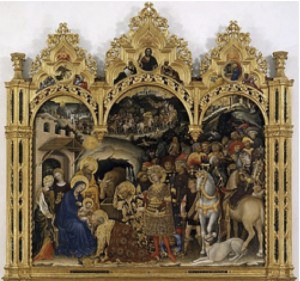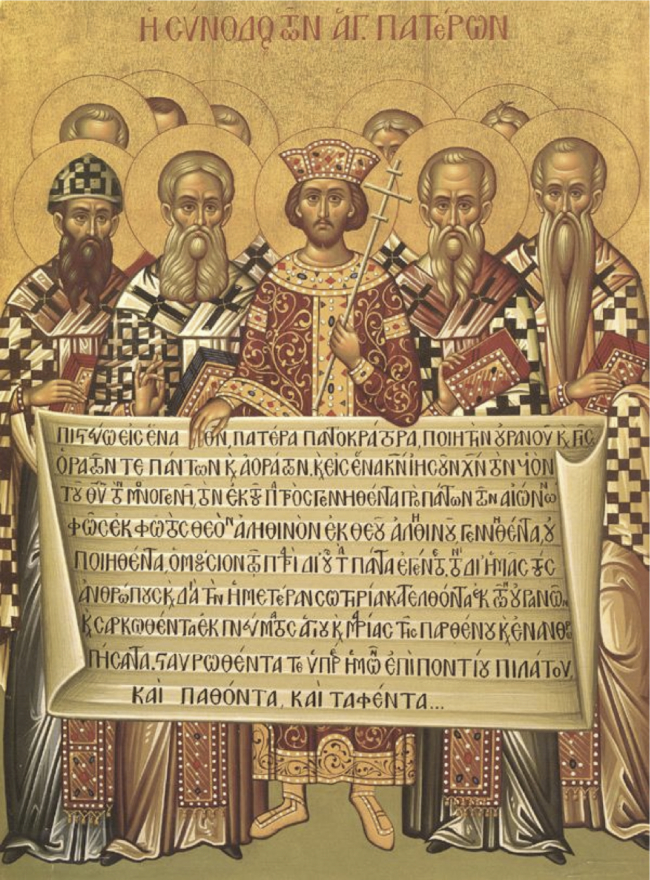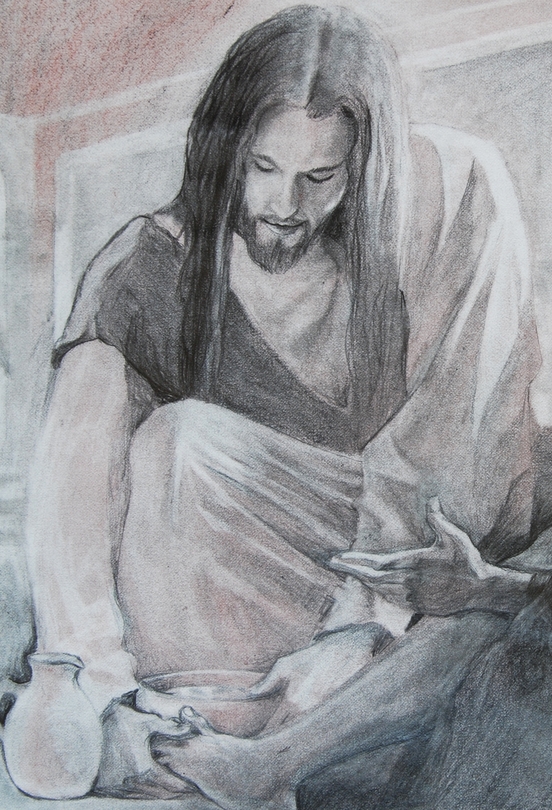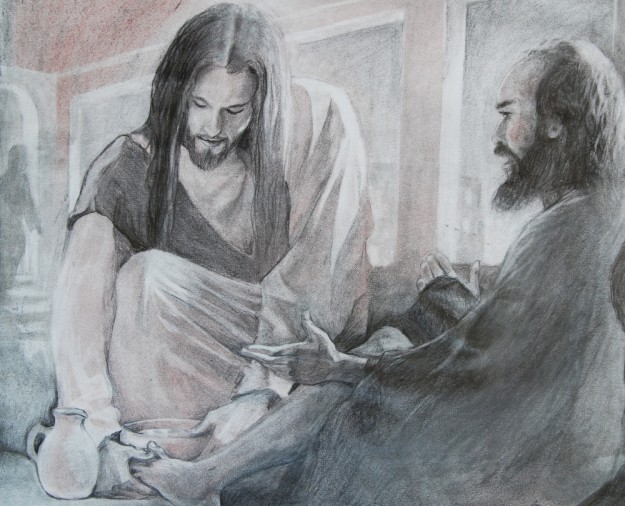How do you account for / explain the different versions of the same event? To what extent does it matter in your understanding and experience of Jesus that the details that describe such a fundamental event in his life are not an agreed Gospel record across Mark, Matthew and Luke? Why did John ignore all the details of the baptism of Jesus?
The challenge for a progressive Christian who has moved beyond such notions as virgin births and gods disguised in human form come to save us from ourselves is to remember that it is as much a historical development, as it is a theological one. That is, the attribution of a “Christ” title accorded a very human Jesus constitutes the imaginations -- if not machinations -- of an early Church; consisting of very human, second-generation followers of a 1st century Galilean peasant sage and itinerant preacher. And who all but drowned out the authentic voice of the one who was once born and dwelt among humankind. Such an assertion is simply based on the fact the historical Jesus never self-identified as the “anointed one,” the Christ. As such, if one were to remove the Christ-title from the various birth narratives of those secondary traditions of this religious movement, what would remain of the “Christmas story” that has become as prevalently assumed, as it has been unexamined? If we took the Christ out of Christmas, what might remain of the voice of one who was born and dwelt among us? You can read more here.
An Open-Ended “Creed” for a Progressive Christian
I have often said so-called “progressive Christianity” is a notion forever in search of its own elusive definition; and that’s as good a way of explaining it as we may be able to find. We live in a post-modern world that considers the age of Enlightenment to be a post-facto reality. As such, “progressive” thinking in an age of Reason has pushed the boundaries of nearly every facet of life, except one: those ‘traditional’ or ‘orthodox’ beliefs, based on certain creeds, doctrines and dogma that still dominate what it presumably means to be “Christian.” It hardly needs to be said that it is also why so many one-time believers have outgrown their one-time faith. Calling them merely “lapsed” is misleading. So much has elapsed in the world we have all come to know and take for granted, that the once-dominant Church -- -- despite all its denominational varieties -- has fast become a post-modern relic. Yet any critical examination of how Christian scriptures developed and how the history of the tradition evolved will quickly demonstrate how it has always been in a constant state of flux. Or, if you like, “progression.” It was only when it stopped and got stuck that we traded in the tent for a temple, and snuffed the life out of a movement that is progressive by its very nature. What then would constitute an honest statement of belief for at least this "progressive Christian?"
The idea of a second coming of Christ is a mystery, if not explicitly controversial. Jesus’ followers apparently believed he would return during their lifetime after he was crucified. When that didn’t happen, later followers gradually changed the belief into an indefinite “someday.” After two thousand years of waiting, most Christians no longer look for it to happen in their lifetimes and acknowledge that Jesus may have been speaking metaphorically about his return. It is just as likely that those words were put into Jesus’ mouth by the gospel writers themselves. Wishful thinking?
Contrary to the custom of the period, Jesus accepted women among his followers. Although none of the women are ever identified as “disciples,” certain gospels passages indicate that some of them may have been equal to the disciples, particularly Mary Magdalene. Mark writes that women followed Jesus in Galilee and ministered to him (Mark 15:40-41). Like Mark, Matthew 17:55 refers to women who “followed Jesus from Galilee, ministering to him.” Luke 8:1-3 mentions that Jesus and the disciples were accompanied by women and he specifically mentions Mary Magdalene, Joanna, the wife of Herod’s steward Chuza, Susanna, and many others, “who provided for them out of their own resources” (meaning that they must have had considerable wealth). Jesus’ death and the events accompanying it mention the presence of women and some of those women witnessed the crucifixion, Jesus’ burial and the discovery of the empty tomb. Pope Benedict XVI considered it an obvious fact that “many women were also chosen to number among the disciples.”
Most people assume that the Bible is filled with stories of supernatural happenings and miraculous interventions. The accounts of miracles in the Bible are generally limited to three cycles of stories: the Moses-Joshua cycle in the Torah, the Elijah-Elisha stories that are recorded between I Kings 17 and II Kings 13, and the Jesus-Disciples of Jesus stories that are found in the four gospels. There is an occasional supernatural tale in other parts of the Bible, but these are the only areas where they are concentrated. Our concentration is primarily on the miracles that are attributed to Jesus in the gospels. The reported supernatural deeds performed by Jesus during his ministry can be categorized into four groups: cures, exorcisms, raising the dead, and nature control. Interestingly, each type of miracle that is attributed to Jesus in the gospels also occurred in the Moses-Joshua and Elijah-Elisha stories.
Once upon a time, political conservatives in America were stereotyped as hard-headed realists, and liberals were described as ungrounded dreamers. How times have changed!
Traditionally this is a time to learn from our mistakes and commit ourselves to do differently in the new year. I wonder what

















